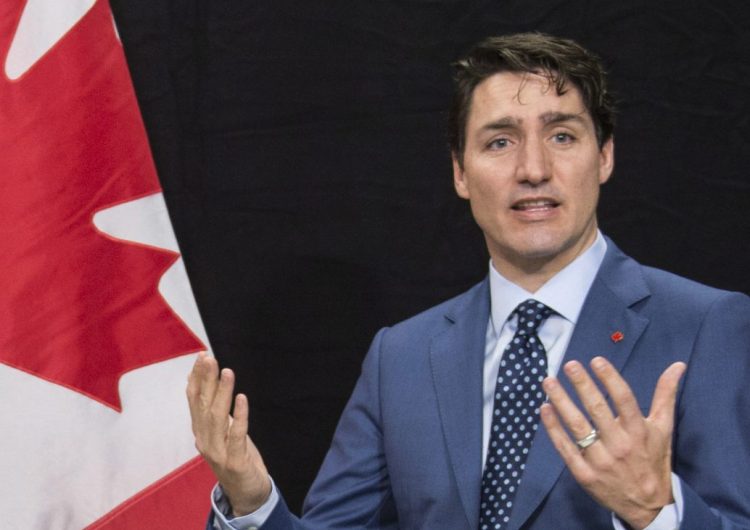DAVOS, Switzerland — Hours after the Trump administration announced its first major tariffs on imported washing machines and solar panels, Canadian Prime Minister Justin Trudeau told a global audience that his country had just reached a historic trade deal with 10 Asia-Pacific countries. The symbolism from Canada was clear: When it comes to trade, the rest of the world is ready to move forward without President Trump.
“Today is a great day for Canada but it is also a great day for progressive trade around the world,” Trudeau said Tuesday at an annual gathering of business and political elites in Davos, Switzerland.
The name of the new deal – Comprehensive and Progressive Trans-Pacific Partnership – is a reminder that Canada and other nations went forward with the Trans-Pacific Partnership, or TPP, after Trump withdrew a year ago in one of his first acts as president. At the time, experts warned that leaving TPP probably would mean the U.S. would be outflanked on trade.
The new deal drops tariffs on many goods flowing between the countries and sets up new rules for labor rights and environmental standards. The agreement involves Canada, Japan, Australia, Singapore, Mexico and six other nations that border the Pacific Ocean. China is not part of the deal, which was originally conceived as a way to counter China’s growing economic power.
Trump, who has called TPP a “disaster” and a “rape” of American workers, is scheduled to speak Friday on the same stage at Davos where Trudeau announced his new trade agreement.
Anticipation is high in Davos that Trump will announce further trade measures in 2018 – and there is concern about the future of the North American Free Trade Agreement.
“What we want is fair trade,” Trump has said repeatedly. “We’re going to treat countries fairly, but they have to treat us fairly.”
American, Canadian and Mexican officials are meeting in Montreal this week for a sixth round of talks aimed at renegotiating NAFTA. Trump has said the trade agreement, in effect since 1994, hurts U.S. manufacturing and workers.
But numerous business leaders say NAFTA has created many jobs and note that there’s no trade deficit between the U.S. and Canada. In fact, the U.S. ran a small trade surplus with Canada in 2016.
“We’re working hard to make sure our neighbor to the south understands the benefits of NAFTA,” Trudeau said with a smile to the Davos crowd.
But even in Davos, which is favored by champions of globalization, there is vocal opposition to trade from critics who say it has benefited the elites at the expense of the middle class in many parts of the world.
“The model of globalization has failed working people,” said Sharan Burrow, head of the International Trade Union Confederation, a global labor organization. “Eighty-five percent of people in our polls say they want to rewrite the rules of global trade.”
Many chief executives at Davos say they don’t view Trump’s recent tariffs as the start of a global trade war. They think he’s looking to score political points with his base, but that he won’t want to upset the stock market record highs and the faster economic growth by putting up too many trade barriers, which probably would spook businesses and investors.
“Trump is coming [to Davos] to show he’s not the ogre he’s been portrayed as,” said David Rubenstein, co-founder of the Carlyle Group, a top private equity firm. Rubenstein has close ties to Trump staff members.
Send questions/comments to the editors.



Success. Please wait for the page to reload. If the page does not reload within 5 seconds, please refresh the page.
Enter your email and password to access comments.
Hi, to comment on stories you must . This profile is in addition to your subscription and website login.
Already have a commenting profile? .
Invalid username/password.
Please check your email to confirm and complete your registration.
Only subscribers are eligible to post comments. Please subscribe or login first for digital access. Here’s why.
Use the form below to reset your password. When you've submitted your account email, we will send an email with a reset code.